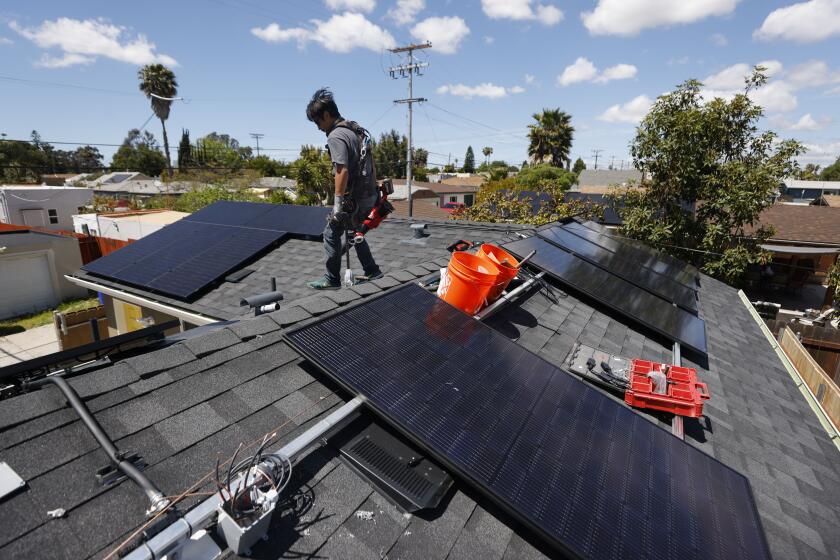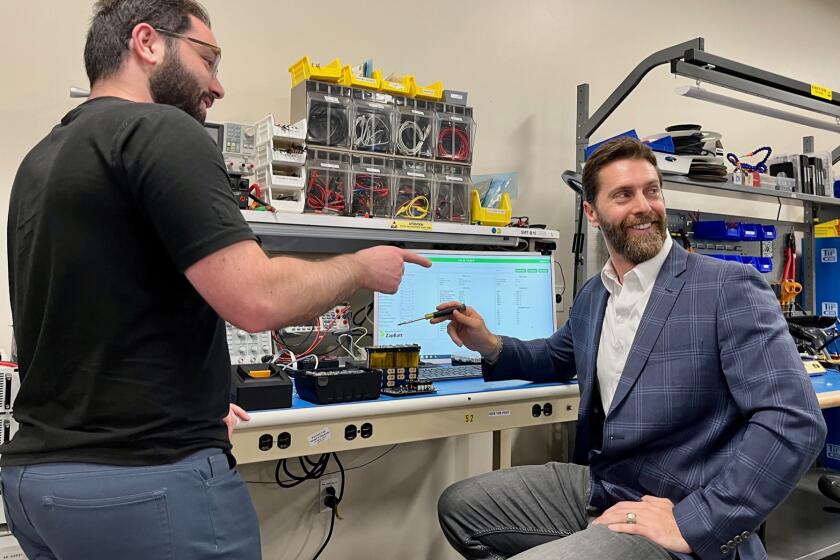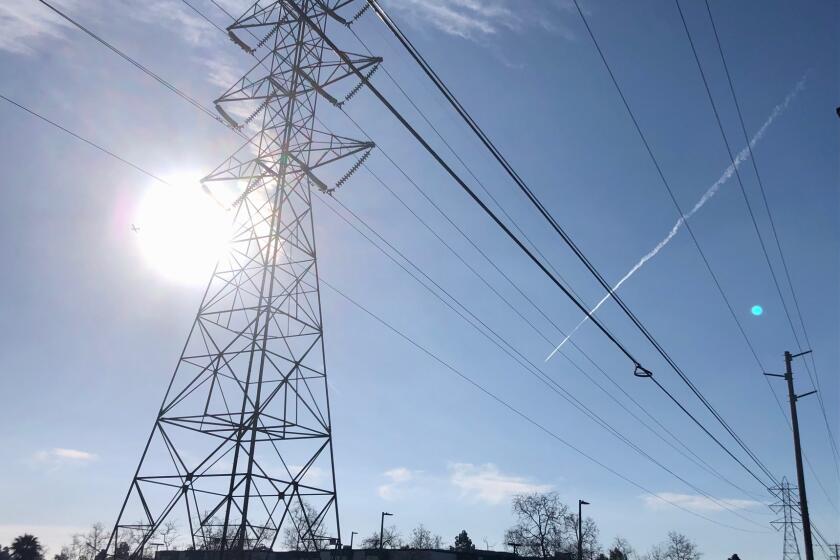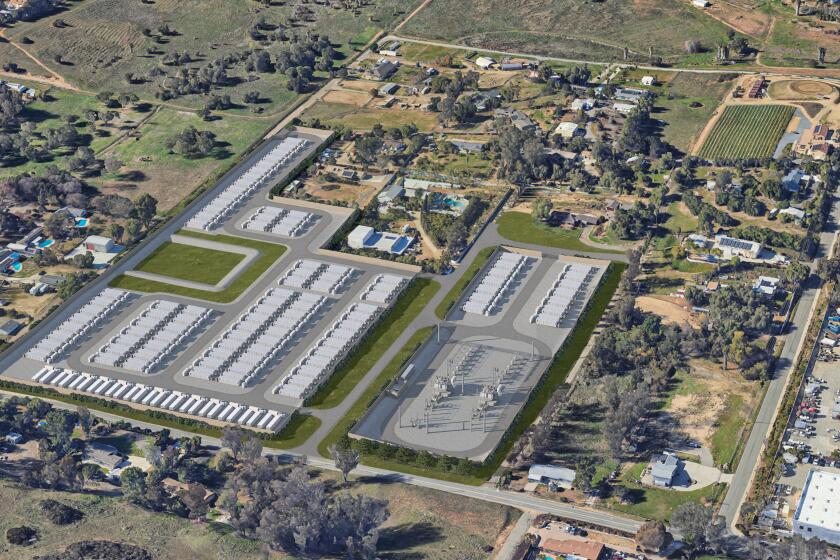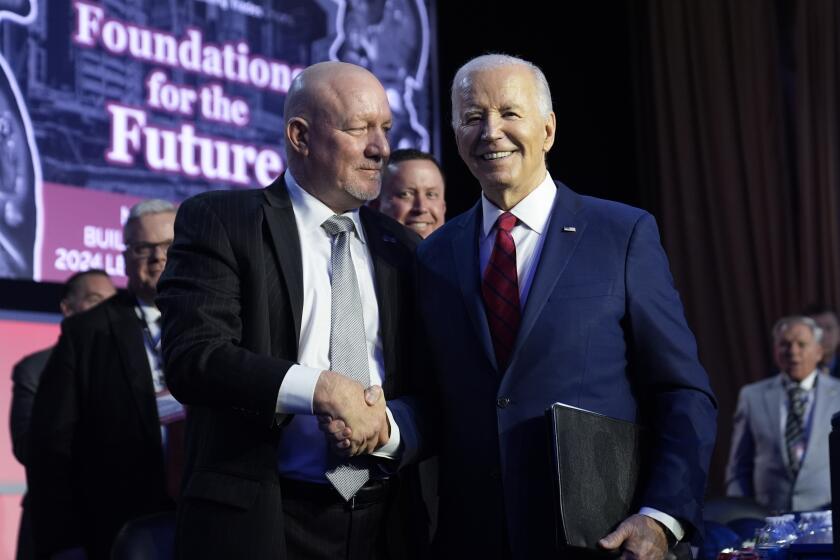Report looks at what to do with the nuclear waste at San Onofre
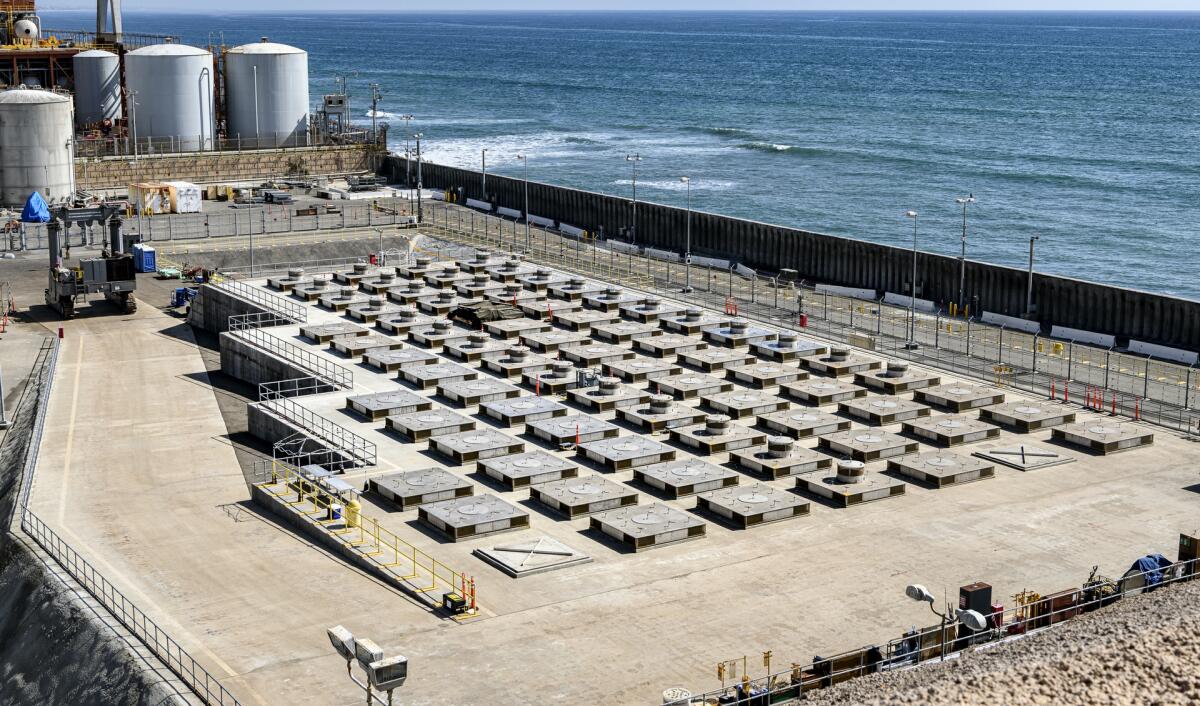
Federal government urged to take action, new coalition forms to generate momentum
Southern California Edison, the operator of the now-shuttered San Onofre nuclear power plant, has released plans to try to find a way to move the 3.6 million pounds of nuclear waste from the plant. The upshot of the three-volume report: There are no easy answers and meaningful progress will require pushing the federal government to act, which will take time.
At the same time, a new coalition has been formed that will look to enlist local governments, businesses and other groups to generate momentum to make some headway.
“It is clear that to make tangible progress on this issue, the federal government must act,” Kevin Payne, Edison’s CEO, said in a statement. “Rather than wait for this to happen, we are going to be a catalyst for change.”
The detailed report came as part of an out-of-court settlement in 2017 between Edison and the San Diego law firm of Aguirre & Severson, which represented two plaintiffs who challenged a California Coastal Commission permit allowing Edison to store spent fuel on the site of the San Onofre Nuclear Generating Station, known as SONGS for short. The settlement required Edison to assemble a team of experts to explore alternative locations where the waste could go.
Attorney Maria Severson called the report “a step in the right direction.”
The report identifies “issues and obstacles and it’s up to the utility now to continue to move the ball forward,” Severson said. “It’s up to the people of California, most specifically neighboring communities, to reach out to their legislators and elected leaders to find a place to move the waste.”
The newly formed coalition, called Action for Spent Fuel Solutions Now, is made up of Edison, San Diego Gas & Electric (which owns 20 percent of SONGS), the city of Riverside (an 1.8 percent owner of the plant) and elected representatives from San Diego and Orange counties. The San Diego representative is Jim Desmond, a member of the San Diego County Board of Supervisors. Desmond is also a member of the SONGS Community Engagement Panel, which gives the public quarterly updates on the activities and decommissioning work at the plant.
The group is looking to get other stakeholders and community members to join.
“To tackle an issue as complicated as removing spent nuclear fuel from the San Onofre Nuclear Generating Station, it will take both local and federal help,” Desmond said in an email. “While it’s just the beginning, I’m optimistic that working with SDG&E, Orange County Supervisor Lisa Bartlett and the federal government, we will make positive efforts towards removing the nuclear waste.”
Dating back to when SONGS generated electricity, the spent fuel is now stored in 123 canisters on the plant’s premises that overlook the Pacific to the west and Interstate 5 to the east. The waste rests in 50 horizontal casks and 73 in vertical casks on the north end of the site.
Edison officials wrote the first of the three volumes in the report — an Action Plan to explore avenues to relocate the spent fuel, or waste. The two other volumes were written by North Wind, a firm based in Idaho with experience in nuclear facility operations and management, in conjunction with the team of experts chosen as part of the settlement agreement. One of the members of the North Wind team is Ernest Moniz, a former secretary of the U.S. Department of Energy during the Obama administration.
The waste issue at SONGS is not unique. About 80,000 metric tons of waste from commercial nuclear plants are stored across the country — 121 sites in 35 states — because the federal government has not constructed a repository to store any of it.
About $15 billion has been spent to construct the Yucca Mountain site in the Nevada desert but shortly before it was scheduled to open, the Obama administration cut off funding, heeding calls from then-Senate Majority Leader Harry Reid and other elected officials in the Silver State long opposed to the facility.
The report’s Action Plan said the owners of SONGS “take no position” on whether Yucca should be reopened but said a “federal solution” offers the “most achievable path” to relocating the waste at SONGS.
One possibility hinges on establishing interim storage facilities where waste from SONGS — and other reactors — could go until a permanent repository is found or reopened. The federal government could establish those sites but the report said doing so would likely require a change in current law, which will be time-consuming. Plus, until a permanent location opens, decision-makers at potential interim sites may worry they could get stuck holding the spent fuel indefinitely.
A pair of private companies have made pitches to build interim storage sites. One group has proposed building a facility in southeastern New Mexico that could potentially take some of the SONGS waste but the state’s governor opposes the plan. In West Texas, a company called Waste Control Specialists has formed a partnership to expand an already existing facility and store as much as 40,000 metric tons spent fuel but the plan has received pushback in some political quarters.
Others have called for sending SONGS waste to the Palo Verde Generating Station in Arizona but the plant’s owners have said they have no interest. However, the report raised the prospect of Edison partnering with other utilities in similar circumstances to consolidate their spent fuel at a common site, although the report said it brings up a host of concerns about cost, ownership of the waste and licensing issues.
Some have called for moving the SONGS waste to a higher elevation within the boundary of Marine Corps Base Camp Pendleton but Navy officials have turned back such notions. Among other issues, the report said this option “would also entail significant facility construction and transportation costs.”
The North Wind team concluded the second volume of the report with hopes that “even in seemingly intractable situations,” change can be made and stressed “the importance of flexibility, persistence, continued corporate commitment vigorous engagement with a range of stakeholders and potential partners to keep pushing for progress.”
The SONGS Community Engagement Panel will discuss the report Thursday in a virtual meeting starting at 5:30 p.m. A link is provided on the panel’s website: https://www.songscommunity.com/community-engagement/meetings/community-engagement-panel-meeting-virtual
Get U-T Business in your inbox on Mondays
Get ready for your week with the week’s top business stories from San Diego and California, in your inbox Monday mornings.
You may occasionally receive promotional content from the San Diego Union-Tribune.


